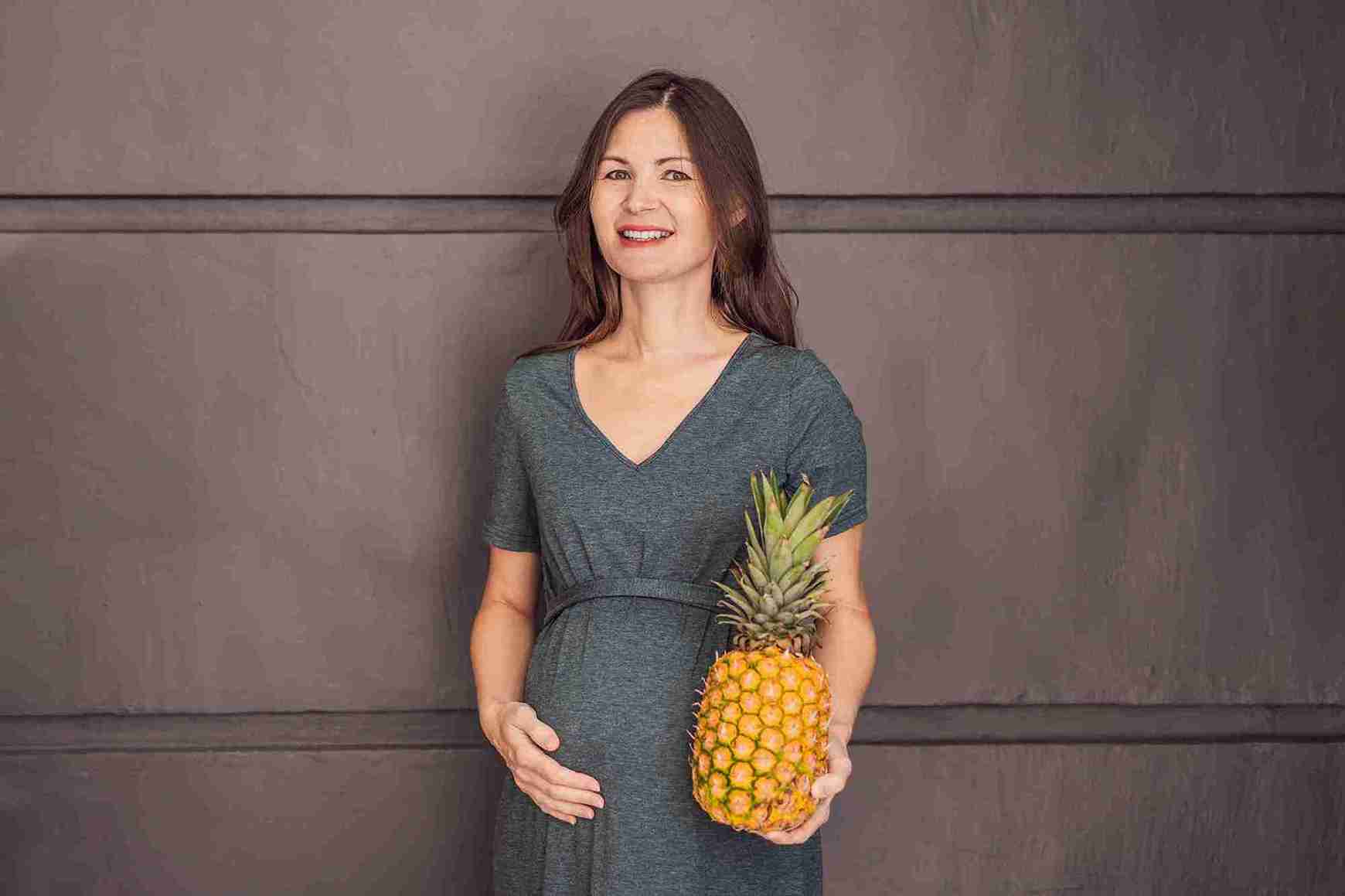
Pregnancy tends to be marked by a long list of dos and don'ts, particularly when it comes to food. One fruit that tends to raise more than a few eyebrows is pineapple. Many pregnant women find themselves asking, "Can I eat pineapple while pregnant?” or "Is pineapple during pregnancy safe in the first trimester?" These questions are driven by rampant myths.
In this piece, we aim to address some of the most frequently asked questions about pineapple consumption during pregnancy by examining its nutritional content, potential risks, benefits, and safe consumption guidelines throughout various stages of pregnancy.

Pineapple is not only a tropical treat; it's nutrient-rich when taken in moderation.
So, can pregnant women eat pineapple? The answer is yes—pregnant pineapple is safe for the majority of women when used in moderation.
There’s a widespread myth that eating pineapple during the first trimester can cause miscarriage. This fear comes from bromelain’s effect in high doses (as found in concentrated supplements), but research shows no scientific evidence linking moderate pineapple consumption with early pregnancy loss.
Later in pregnancy, pineapple is safe and can even have advantages, such as minimising swelling and enhancing digestion. By now, most of the baby's organ development is complete, again reducing risks.
But it's important to distinguish between fresh pineapple and bromelain supplements, which are not advisable during pregnancy because of their high potency.
Consuming pineapple during pregnancy has many health advantages:
As with all foods, too much pineapple is not recommended. Pineapple overconsumption may cause some discomfort or side effects:

Let's dispel some of the most long-standing myths surrounding this tropical fruit:
Myth 1: Pineapple leads to miscarriage
Reality: There are no credible scientific studies backing this up. Regular food aounts are safe.
Myth 2: Pineapple induces early labour
Reality: Only very high amounts of bromelain (such as parts found in supplements) might have such an impact, not fresh pineapple.
Myth 3: Pineapple during the first trimester of pregnancy is unsafe.
Reality: Pineapple during pregnancy first trimester is usually safe when consumed in moderate amounts, unless otherwise advised by a physician.
There are many innovative, safe, and tasty ways to incorporate pineapple while pregnant into your diet:
These practices maximise the nutritional content of the fruit while reducing gastrointestinal distress.
In general, pineapple is a good and healthy inclusion in your prenatal diet. Nevertheless, it is sensible to see your gynaecologist if:
Pregnancy is an individual experience, and what is good for one woman may not be good for another. Individual medical counsel is always optimum.

At Cloudnine Hospital, we believe it is essential to empower prospective mothers with accurate, evidence-based information. Our experienced obstetricians and prenatal dietitians collaborate to guide you in making healthy and safe food decisions, including advice on incorporating fruits like pineapple.
Whether you’re in your first trimester or counting down to your due date, Cloudnine provides personalised support to ensure your pregnancy journey is as healthy and joyful as possible. From myth-busting to medical assessments, we’re here every step of the way.
So, can pregnant women consume pineapple? Yes—but in moderation and with regard to your body's unique response. Despite enduring myths, pineapple during pregnancy has some dietary advantages and is generally safe throughout all trimesters, including the first trimester, when consumed in moderation.
Knowing the facts behind food myths and heeding professional guidance allows you to nourish yourself and your baby safely.
Have pregnancy diet questions? Trust Cloudnine's specialists for customised prenatal and nutritional care. Schedule your consultation now.

No scientific evidence supports this claim. Fresh pineapple has very minute quantities of bromelain, which are destroyed in the digestive system.

Only in very high doses, such as concentrated bromelain supplements, can pineapple potentially affect the uterus. Fresh pineapple contains only small amounts of bromelain, which are usually broken down during digestion and are safe when eaten in moderation.

Yes, but it should be consumed in moderation due to the added sugars. Fresh pineapple is the healthy choice.
